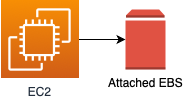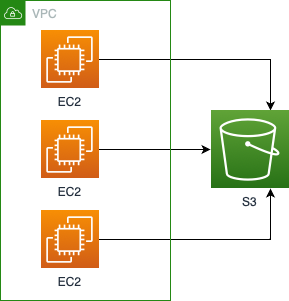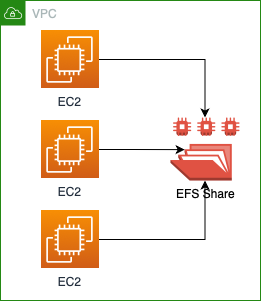A Complete Guide to AWS File Handling and How It Is Revolutionizing Cloud Storage
Learn about the world of AWS file handling, how it is revolutionizing cloud storage, and discover the different ways you can manage your files.
Join the DZone community and get the full member experience.
Join For FreeFile handling in AWS is essentially a cloud storage solution that enables corporations to store, manage, and access their data in the cloud. AWS provides a wide range of cloud storage solutions to handle files effectively.
Among these, Amazon S3 is the most popular and widely used service for object storage in the cloud. It offers highly scalable, durable, and secure storage for any kind of data, such as images, videos, documents, and backups, at a low cost.
Amazon EBS, on the other hand, is a block-level storage service that provides persistent storage volumes for use with Amazon EC2 instances. It is ideal for transactional workloads that require low latency and high throughput.
Amazon EFS, a fully managed file system, is designed to be highly available, durable, and scalable. It provides a simple interface to manage file systems and supports multiple EC2 instances simultaneously.
Finally, Amazon FSx for Windows File Server provides a fully managed native Microsoft Windows file system that can be accessed over the industry-standard SMB protocol. This service is ideal for customers who want to move their Windows-based applications to the AWS Cloud and need shared file storage.
With these AWS file-handling services, firms can store, manage, and access their data efficiently and securely in the cloud.
How EBS Can Help With High-Performance Computing
Amazon Elastic Block Store (EBS) is a cloud-based block-level storage service that provides highly scalable and persistent storage volumes for use with Amazon EC2 instances. You can think of it as an external hard drive to your computer. You can attach it to a laptop, detach it and attach it to another laptop. However, you cannot attach it to two laptops at the same time.
EBS volumes work in a similar fashion. EBS volumes are designed to deliver low-latency performance and high throughput, making them ideal for high-performance computing (HPC) workloads. EBS volumes can be easily attached to EC2 instances, allowing users to create customized HPC environments that meet their specific needs. Additionally, EBS volumes support a variety of data-intensive workloads, such as databases, data warehousing, and big data analytics, making them a versatile choice for enterprises looking to optimize their storage infrastructure. Since EBS is attached to a single ECS instance, it acts as a dedicated file store for that instance, thereby providing low-latency file access.

How S3 Becomes the Cornerstone of Your Cloud Storage Needs and Capacities
No discussion on cloud storage is complete without mentioning S3. EBS is great as a storage solution when the application accessing it is running on a single server. But when multiple servers need to access the same set of files, EBS will not work.
Amazon S3 (Simple Storage Service) is an object storage service that offers industry-leading scalability, durability, and security for organizations of all sizes. With S3, users can store and retrieve any amount of data from anywhere in the world, making it an ideal solution for cloud storage needs.
S3 provides a highly available and fault-tolerant architecture that ensures data is always accessible, with a durability of 99.999999999% (11 nines). This means that operations can rely on S3 for critical data storage, backup, and disaster recovery needs. Additionally, S3 supports a variety of use cases, such as data lakes, content distribution, and backup and archiving, making it a versatile choice for enterprises looking to optimize their cloud storage infrastructure.
To connect to an S3 bucket, EC2 instances running within a VPC can either use a VPC endpoint or connect over the internet. Connecting through a VPC endpoint will provide much lower latency. When an application requires file interchange with a third-party application, S3 is one of the best choices. Files from external applications can be put into an S3 bucket using the SFTP protocol; S3 Transfer Family provides support for this. Applications running in EC2 instances can then access these files directly.

Unlock the Power of EFS for Enterprise-Grade Scalable File Storage
S3 can be accessed by many applications, even external ones running outside AWS. However, if the requirement is to store files to be accessed by multiple EC2 instances within a VPC, EFS provides a scalable low-latency solution. This is similar to accessing shared files within a corporate intranet.
Amazon Elastic File System (EFS) is a fully managed file storage service designed to provide enterprise-grade scalable file storage for use with Amazon EC2 instances. EFS volumes are highly available, durable, and scalable, making them ideal for companies that require high-performance file storage solutions. With EFS, users can create file systems that can scale up or down automatically in response to changes in demand, without impacting performance or availability. This means that organizations can easily manage their file storage needs, without having to worry about capacity planning or performance issues. Additionally, EFS supports a variety of file-based workloads, such as content management, web serving, and home directories, making it a versatile choice for firms of all sizes.
After setting up EFS within a VPC, mount targets need to be created. EFS supports one mount target per availability zone within a VPC. Once the mount targets are created the file system can be mounted onto compute resources like EC2, ECS and Lambda.

Revolutionize Your Data Access and Analysis With FSx for Lustre and Windows File System
Amazon FSx for Lustre and Windows file system is a fully managed file storage service that helps organizations revolutionize their data access and analysis capabilities. FSx for Lustre is a high-performance file system designed for compute-intensive workloads, such as machine learning, high-performance computing, and video processing. It delivers sub-millisecond latencies and high throughput, making it ideal for applications that require fast access to large datasets.
FSx for Windows file system, on the other hand, provides fully managed Windows file shares backed by Windows Server and the Server Message Block (SMB) protocol. It supports a wide range of use cases, such as home directories, application data, and media editing, and provides built-in features for data protection and disaster recovery.
Selecting a File-Handling Service
When deciding whether to use Amazon EFS or Amazon FSx for Lustre and Windows file systems, it's important to consider the specific needs of your organization. EFS is a good choice for general-purpose file storage workloads that require high availability and scalability, such as content management, web serving, and home directories. On the other hand, FSx for Lustre is designed for compute-intensive workloads that require high-performance file storage, such as machine learning and high-performance computing. Furthermore, FSx for Windows file system is ideal for firms that require fully managed Windows file shares backed by Windows Server and the SMB protocol.
Ultimately, the choice between EFS and FSx will depend on the specific requirements of your workload and the level of performance, scalability, and manageability that your application requires.
Opinions expressed by DZone contributors are their own.

Comments